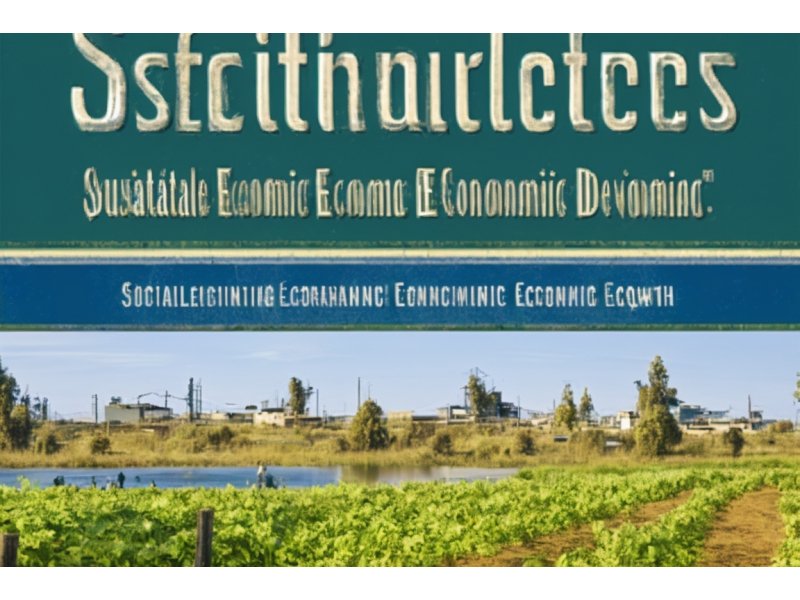
Introduction:
In today's world, the pursuit of economic growth must go hand in hand with environmental sustainability and social equity. As the global community grapples with the urgent need to address climate change, resource depletion, and social inequalities, sustainable economic development emerges as a viable solution. This blog explores the strategies and approaches that can help us achieve sustainable economic growth while balancing environmental concerns, social equity, and economic progress.
1. Embrace Green Technologies and Innovation:
One of the key strategies for sustainable economic development is embracing green technologies and fostering innovation. By investing in renewable energy, clean technologies, and sustainable practices, economies can reduce their carbon footprint while creating new opportunities for economic growth. Governments, businesses, and individuals must collaborate to develop and adopt innovative solutions that minimize environmental impact without compromising economic progress.
2. Implement Effective Environmental Policies:
To achieve sustainable economic growth, robust environmental policies are crucial. Governments need to enact and enforce regulations that incentivize businesses to adopt sustainable practices, reduce pollution, and protect natural resources. Implementing market-based mechanisms such as carbon pricing or cap-and-trade systems can encourage businesses to reduce emissions and invest in cleaner technologies. It is essential to strike a balance that promotes environmental stewardship while ensuring economic viability.
3. Foster Social Inclusion and Equity:
Sustainable economic development should prioritize social equity, ensuring that the benefits of growth are distributed fairly across society. Policies should aim to reduce income disparities, provide access to education and healthcare, and create employment opportunities for marginalized communities. Emphasizing inclusive growth can enhance social cohesion and contribute to long-term economic stability.
4. Promote Circular Economy Principles:
Moving away from the traditional linear model of production and consumption, embracing a circular economy is essential for sustainable development. A circular economy focuses on reducing waste, reusing resources, and recycling materials to minimize environmental impact. By designing products with longevity in mind, implementing efficient recycling systems, and encouraging responsible consumption, economies can create a more sustainable and resource-efficient future.
5. Invest in Sustainable Infrastructure:
Investing in sustainable infrastructure is critical for achieving long-term economic growth while minimizing environmental harm. Infrastructure projects should prioritize renewable energy, public transportation, and green building practices. By integrating sustainability into infrastructure planning, countries can reduce greenhouse gas emissions, enhance resilience to climate change, and create jobs in the clean energy sector.
6. Encourage Stakeholder Collaboration:
Achieving sustainable economic development requires collaboration among governments, businesses, civil society organizations, and individuals. Stakeholders must come together to develop shared goals, exchange knowledge and expertise, and implement coordinated actions. By fostering partnerships and engaging all sectors of society, we can leverage collective efforts to drive sustainable economic growth and address pressing environmental and social challenges.
Conclusion:
Striving for sustainable economic development necessitates a holistic approach that balances environmental concerns, social equity, and economic progress. By embracing green technologies, implementing effective environmental policies, fostering social inclusion, promoting circular economy principles, investing in sustainable infrastructure, and encouraging stakeholder collaboration, we can pave the way for a more sustainable future. It is through these strategies and the collective commitment of individuals, communities, and nations that we can achieve the delicate balance necessary to ensure a prosperous and resilient world for generations to come.
Share This News